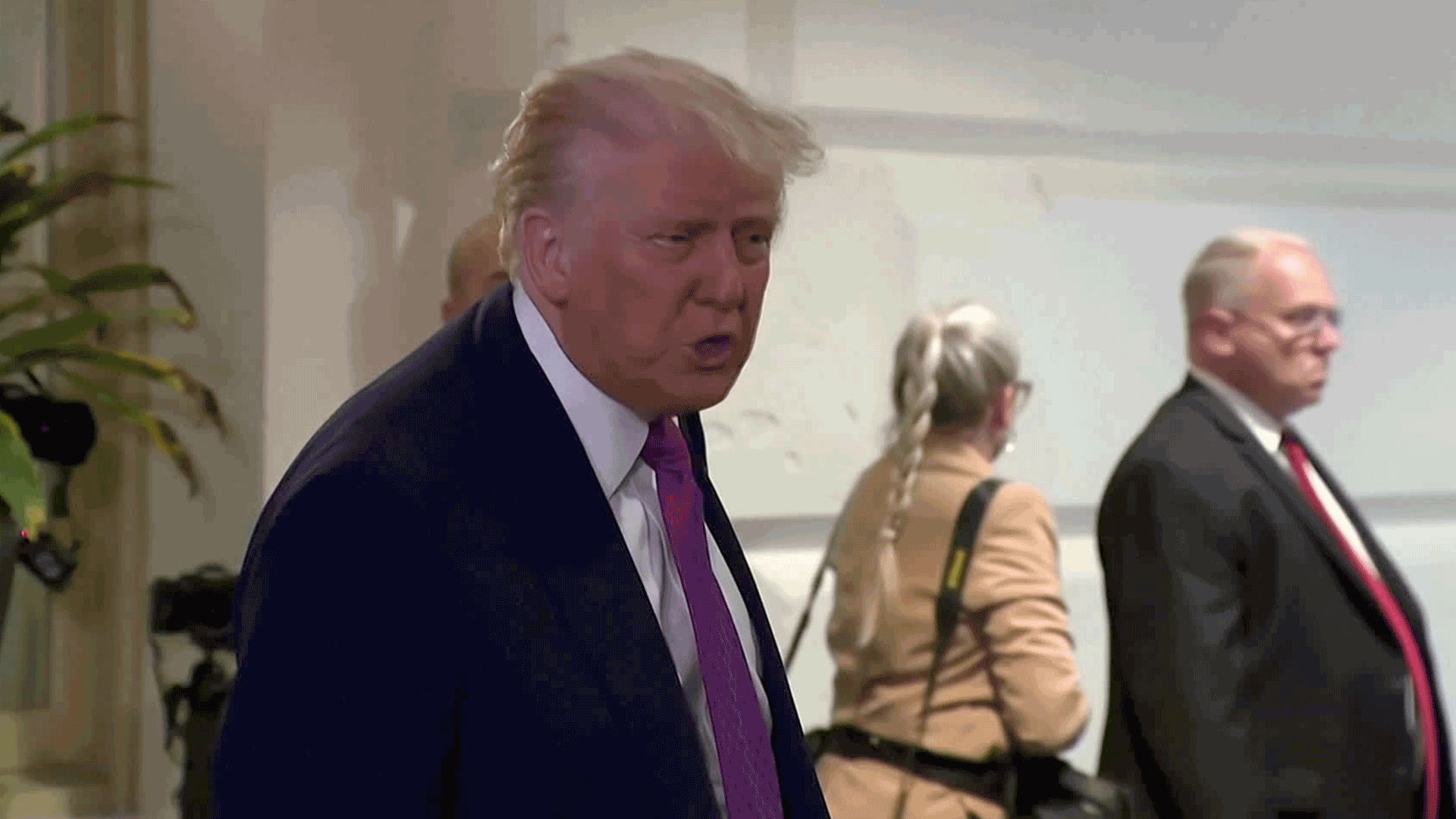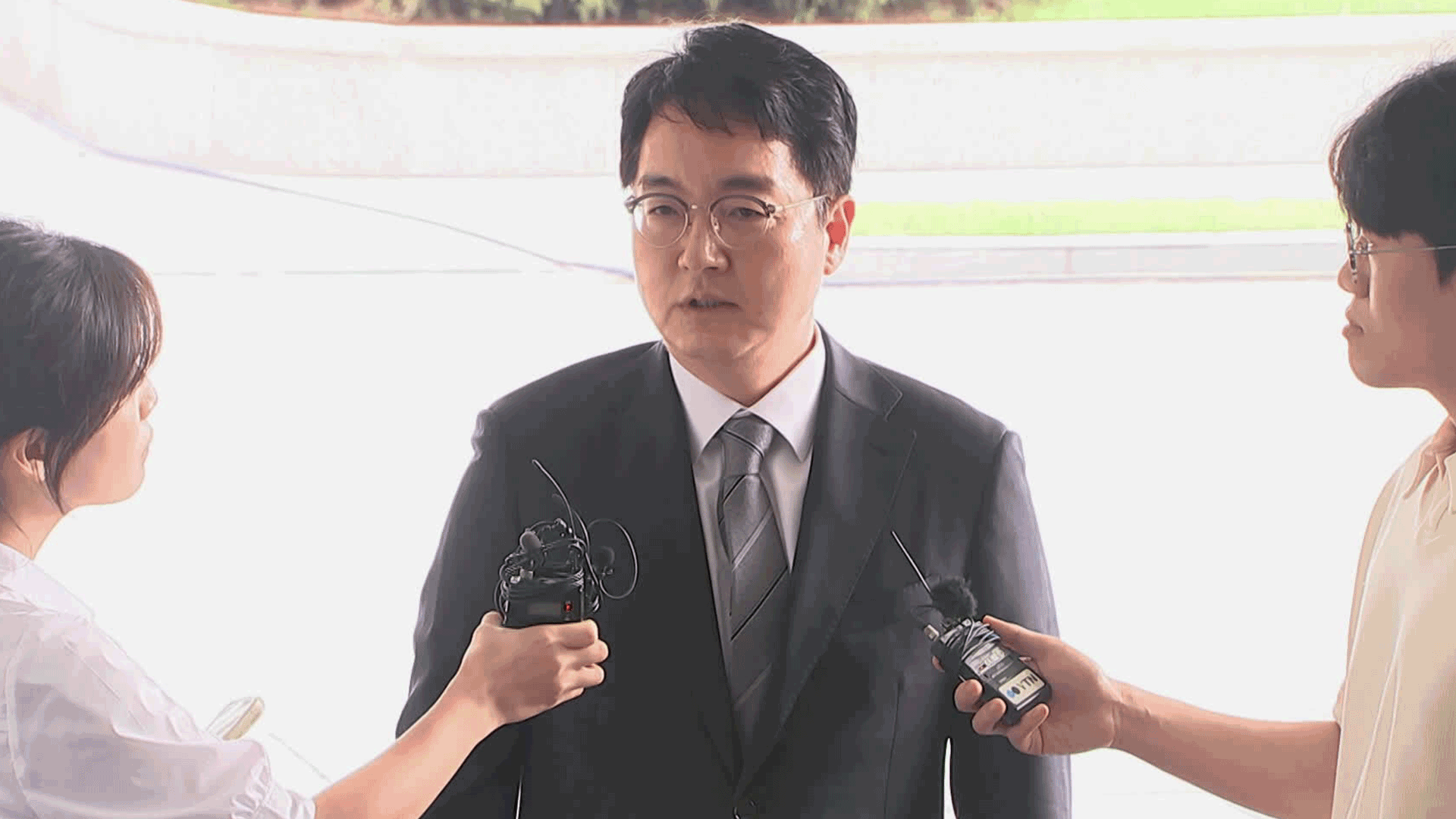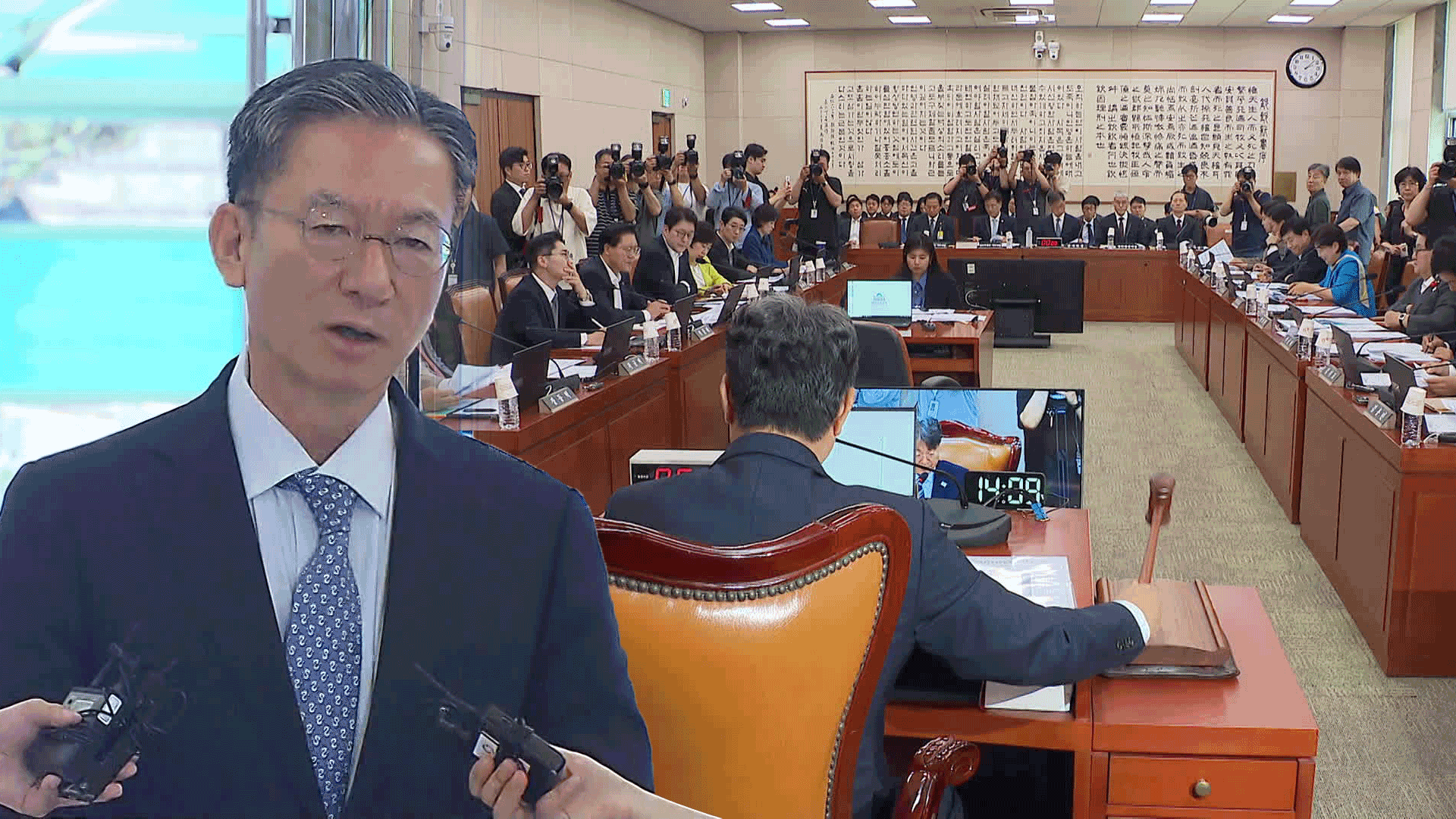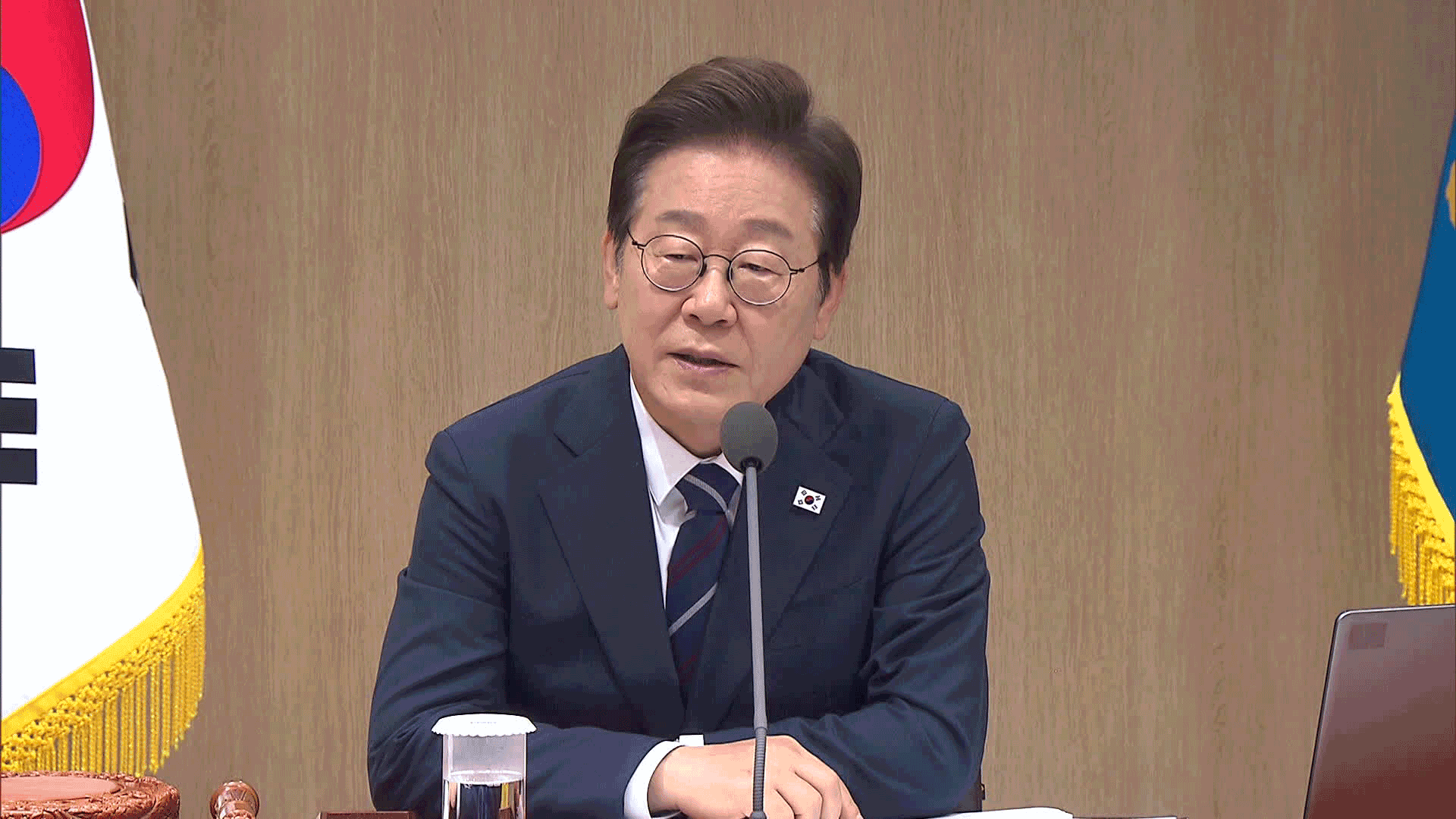[Anchor]
A U.S. court has put a stop to the tariff policy of the Trump administration that has thrown the world into chaos.
It has ruled that the policy exceeds the president's authority and is therefore invalid.
The Trump administration has responded by calling it a judicial coup.
First, let’s hear the report from our correspondent Park Il-jung in New York.
[Report]
The reciprocal tariffs announced by President Trump last month against the world have immediately impacted American businesses that need to import goods to sell.
[Beth Benicky/Importer of infant products: "I can't pay my employees, I can't pay the lease for this building. I can't pay my loans."]
Businesses and 12 state governments, including New York, have filed a lawsuit against the Trump administration, and the court has ruled in their favor.
On the 28th local time, the U.S. Court of International Trade decided to permanently invalidate the reciprocal tariffs announced by President Trump.
It stated that imposing tariffs and retaliatory tariffs on the world based on the International Emergency Economic Powers Act exceeds the president's authority and is illegal.
Additionally, while Trump claimed that the U.S. trade deficit created a national emergency, the court did not accept this argument, stating that the deficit was already a chronic issue.
If the ruling is finalized, the reciprocal tariffs imposed worldwide, as well as tariffs on China, Mexico, and Canada due to fentanyl smuggling, will be abolished.
However, the court did not immediately suspend the effectiveness of the tariffs and ordered the Trump administration to take action within ten days.
In response, Stephen Miller, Deputy White House Chief of Staff, wrote on social media right after the ruling that "the judicial coup is out of control," and they have immediately appealed.
[Anchor]
Yes, let's connect directly to New York.
Park Il-jung, I see that the target is the reciprocal tariffs, but they haven't been stopped immediately.
What will happen next?
[Reporter]
Yes, this ruling is at the first instance level.
It is expected that the trial will continue for a long time, eventually reaching the Supreme Court after the appeals process.
The Trump administration is likely to contest whether they must follow the first instance ruling that invalidates the reciprocal tariffs from the appeals trial onward.
[Anchor]
The Trump administration is using the reciprocal tariffs as leverage to negotiate with other countries, so this will likely have further impact?
[Reporter]
The negotiations that the Trump administration has been conducting with trade partners, including South Korea, are likely to lose momentum.
Trade partners may delay negotiations while waiting for the final trial results.
However, tariffs on steel, aluminum, and automobiles based on other laws such as the Trade Expansion Act remain in effect.
Although it will take a long time, it is still possible to impose additional item-specific tariffs based on these laws.
In cases like ours, where there are trade issues along with other matters such as defense cost negotiations, the pressure from the Trump administration is likely to continue.
This has been reported from New York.
A U.S. court has put a stop to the tariff policy of the Trump administration that has thrown the world into chaos.
It has ruled that the policy exceeds the president's authority and is therefore invalid.
The Trump administration has responded by calling it a judicial coup.
First, let’s hear the report from our correspondent Park Il-jung in New York.
[Report]
The reciprocal tariffs announced by President Trump last month against the world have immediately impacted American businesses that need to import goods to sell.
[Beth Benicky/Importer of infant products: "I can't pay my employees, I can't pay the lease for this building. I can't pay my loans."]
Businesses and 12 state governments, including New York, have filed a lawsuit against the Trump administration, and the court has ruled in their favor.
On the 28th local time, the U.S. Court of International Trade decided to permanently invalidate the reciprocal tariffs announced by President Trump.
It stated that imposing tariffs and retaliatory tariffs on the world based on the International Emergency Economic Powers Act exceeds the president's authority and is illegal.
Additionally, while Trump claimed that the U.S. trade deficit created a national emergency, the court did not accept this argument, stating that the deficit was already a chronic issue.
If the ruling is finalized, the reciprocal tariffs imposed worldwide, as well as tariffs on China, Mexico, and Canada due to fentanyl smuggling, will be abolished.
However, the court did not immediately suspend the effectiveness of the tariffs and ordered the Trump administration to take action within ten days.
In response, Stephen Miller, Deputy White House Chief of Staff, wrote on social media right after the ruling that "the judicial coup is out of control," and they have immediately appealed.
[Anchor]
Yes, let's connect directly to New York.
Park Il-jung, I see that the target is the reciprocal tariffs, but they haven't been stopped immediately.
What will happen next?
[Reporter]
Yes, this ruling is at the first instance level.
It is expected that the trial will continue for a long time, eventually reaching the Supreme Court after the appeals process.
The Trump administration is likely to contest whether they must follow the first instance ruling that invalidates the reciprocal tariffs from the appeals trial onward.
[Anchor]
The Trump administration is using the reciprocal tariffs as leverage to negotiate with other countries, so this will likely have further impact?
[Reporter]
The negotiations that the Trump administration has been conducting with trade partners, including South Korea, are likely to lose momentum.
Trade partners may delay negotiations while waiting for the final trial results.
However, tariffs on steel, aluminum, and automobiles based on other laws such as the Trade Expansion Act remain in effect.
Although it will take a long time, it is still possible to impose additional item-specific tariffs based on these laws.
In cases like ours, where there are trade issues along with other matters such as defense cost negotiations, the pressure from the Trump administration is likely to continue.
This has been reported from New York.
■ 제보하기
▷ 카카오톡 : 'KBS제보' 검색, 채널 추가
▷ 전화 : 02-781-1234, 4444
▷ 이메일 : kbs1234@kbs.co.kr
▷ 유튜브, 네이버, 카카오에서도 KBS뉴스를 구독해주세요!
- U.S. court blocks Trump tariffs
-
- 입력 2025-05-30 00:52:01

[Anchor]
A U.S. court has put a stop to the tariff policy of the Trump administration that has thrown the world into chaos.
It has ruled that the policy exceeds the president's authority and is therefore invalid.
The Trump administration has responded by calling it a judicial coup.
First, let’s hear the report from our correspondent Park Il-jung in New York.
[Report]
The reciprocal tariffs announced by President Trump last month against the world have immediately impacted American businesses that need to import goods to sell.
[Beth Benicky/Importer of infant products: "I can't pay my employees, I can't pay the lease for this building. I can't pay my loans."]
Businesses and 12 state governments, including New York, have filed a lawsuit against the Trump administration, and the court has ruled in their favor.
On the 28th local time, the U.S. Court of International Trade decided to permanently invalidate the reciprocal tariffs announced by President Trump.
It stated that imposing tariffs and retaliatory tariffs on the world based on the International Emergency Economic Powers Act exceeds the president's authority and is illegal.
Additionally, while Trump claimed that the U.S. trade deficit created a national emergency, the court did not accept this argument, stating that the deficit was already a chronic issue.
If the ruling is finalized, the reciprocal tariffs imposed worldwide, as well as tariffs on China, Mexico, and Canada due to fentanyl smuggling, will be abolished.
However, the court did not immediately suspend the effectiveness of the tariffs and ordered the Trump administration to take action within ten days.
In response, Stephen Miller, Deputy White House Chief of Staff, wrote on social media right after the ruling that "the judicial coup is out of control," and they have immediately appealed.
[Anchor]
Yes, let's connect directly to New York.
Park Il-jung, I see that the target is the reciprocal tariffs, but they haven't been stopped immediately.
What will happen next?
[Reporter]
Yes, this ruling is at the first instance level.
It is expected that the trial will continue for a long time, eventually reaching the Supreme Court after the appeals process.
The Trump administration is likely to contest whether they must follow the first instance ruling that invalidates the reciprocal tariffs from the appeals trial onward.
[Anchor]
The Trump administration is using the reciprocal tariffs as leverage to negotiate with other countries, so this will likely have further impact?
[Reporter]
The negotiations that the Trump administration has been conducting with trade partners, including South Korea, are likely to lose momentum.
Trade partners may delay negotiations while waiting for the final trial results.
However, tariffs on steel, aluminum, and automobiles based on other laws such as the Trade Expansion Act remain in effect.
Although it will take a long time, it is still possible to impose additional item-specific tariffs based on these laws.
In cases like ours, where there are trade issues along with other matters such as defense cost negotiations, the pressure from the Trump administration is likely to continue.
This has been reported from New York.
A U.S. court has put a stop to the tariff policy of the Trump administration that has thrown the world into chaos.
It has ruled that the policy exceeds the president's authority and is therefore invalid.
The Trump administration has responded by calling it a judicial coup.
First, let’s hear the report from our correspondent Park Il-jung in New York.
[Report]
The reciprocal tariffs announced by President Trump last month against the world have immediately impacted American businesses that need to import goods to sell.
[Beth Benicky/Importer of infant products: "I can't pay my employees, I can't pay the lease for this building. I can't pay my loans."]
Businesses and 12 state governments, including New York, have filed a lawsuit against the Trump administration, and the court has ruled in their favor.
On the 28th local time, the U.S. Court of International Trade decided to permanently invalidate the reciprocal tariffs announced by President Trump.
It stated that imposing tariffs and retaliatory tariffs on the world based on the International Emergency Economic Powers Act exceeds the president's authority and is illegal.
Additionally, while Trump claimed that the U.S. trade deficit created a national emergency, the court did not accept this argument, stating that the deficit was already a chronic issue.
If the ruling is finalized, the reciprocal tariffs imposed worldwide, as well as tariffs on China, Mexico, and Canada due to fentanyl smuggling, will be abolished.
However, the court did not immediately suspend the effectiveness of the tariffs and ordered the Trump administration to take action within ten days.
In response, Stephen Miller, Deputy White House Chief of Staff, wrote on social media right after the ruling that "the judicial coup is out of control," and they have immediately appealed.
[Anchor]
Yes, let's connect directly to New York.
Park Il-jung, I see that the target is the reciprocal tariffs, but they haven't been stopped immediately.
What will happen next?
[Reporter]
Yes, this ruling is at the first instance level.
It is expected that the trial will continue for a long time, eventually reaching the Supreme Court after the appeals process.
The Trump administration is likely to contest whether they must follow the first instance ruling that invalidates the reciprocal tariffs from the appeals trial onward.
[Anchor]
The Trump administration is using the reciprocal tariffs as leverage to negotiate with other countries, so this will likely have further impact?
[Reporter]
The negotiations that the Trump administration has been conducting with trade partners, including South Korea, are likely to lose momentum.
Trade partners may delay negotiations while waiting for the final trial results.
However, tariffs on steel, aluminum, and automobiles based on other laws such as the Trade Expansion Act remain in effect.
Although it will take a long time, it is still possible to impose additional item-specific tariffs based on these laws.
In cases like ours, where there are trade issues along with other matters such as defense cost negotiations, the pressure from the Trump administration is likely to continue.
This has been reported from New York.
-
-

박일중 기자 baikal@kbs.co.kr
박일중 기자의 기사 모음
-
이 기사가 좋으셨다면
-
좋아요
0
-
응원해요
0
-
후속 원해요
0












![[단독] 골프연습장 아니라더니<br>…‘한남동 골프연습장’ 도면 입수](/data/news/2025/07/01/20250701_Uh8Jnu.png)


이 기사에 대한 의견을 남겨주세요.